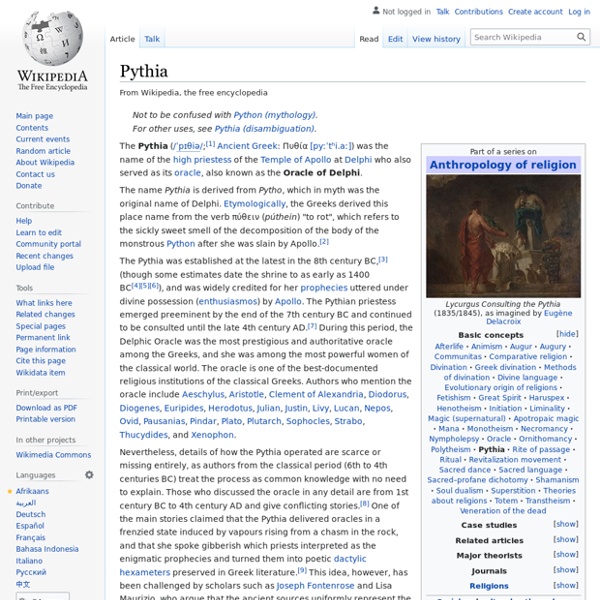Adrastus
Ancient Greek mythological king of Argos Adrastus (; Ancient Greek: Ἄδραστος Adrastos) or Adrestus (Ionic: Ἄδρηστος Adrēstos), traditionally translated as 'inescapable',[1] was a legendary king of Argos during the war of the Seven Against Thebes. Family[edit]
Peisistratos
Peisistratos (Greek: Πεισίστρατος; died 528/7 BC), Latinized Pisistratus, the son of Hippocrates, was a ruler of ancient Athens during most of the period between 561 and 527 BC.[2] His legacy lies primarily in his instituting the Panathenaic Games, historically assigned the date of 566 B.C., and the consequent first attempt at producing a definitive version of the Homeric epics. Peisistratos' championing of the lower class of Athens, the Hyperakrioi, (see below) is an early example of populism. While in power, Peisistratos did not hesitate to confront the aristocracy, and he greatly reduced their privileges, confiscated their lands and gave them to the poor, and funded many religious and artistic programs.[3] Peisistratus was a one-time brother-in-law of Cleisthenes;[4] however, Peisistratus was much older.
Tellus
Tellus is a Latin word meaning "Earth" and may refer to:
Solon
Solon (Greek: Σόλων Sólōn [só.lɔːn]; c. 630 – c. 560 BC)[1] was an Athenian statesman, lawmaker and poet. He is remembered particularly for his efforts to legislate against political, economic and moral decline in archaic Athens.[2] His reforms failed in the short-term, yet he is often credited with having laid the foundations for Athenian democracy.[3][4][5] He wrote poetry for pleasure, as patriotic propaganda, and in defence of his constitutional reform. Life[edit]
Dolphin
marine mammals, closely related to whales and porpoises Dolphin is a common name of aquatic mammals within the infraorder Cetacea. The term dolphin usually refers to the extant families Delphinidae (the oceanic dolphins), Platanistidae (the Indian river dolphins), Iniidae (the New World river dolphins), and Pontoporiidae (the brackish dolphins), and the extinct Lipotidae (baiji or Chinese river dolphin).
Arion
Arion (; Greek: Ἀρίων) was a kitharode in ancient Greece, a Dionysiac poet credited with inventing the dithyramb: "As a literary composition for chorus dithyramb was the creation of Arion of Corinth,"[1] The islanders of Lesbos claimed him as their native son, but Arion found a patron in Periander, tyrant of Corinth. Although notable for his musical inventions, Arion is chiefly remembered for the fantastic myth of his kidnapping by pirates and miraculous rescue by dolphins, a folktale motif.[2] Herodotus (1.23) says "Arion was second to none of the lyre-players in his time and was also the first man we know of to compose and name the dithyramb and teach it in Corinth".
Croesus
Lydian King Croesus[1] ( KREE-səs; Ancient Greek: Κροῖσος, Kroisos; 595 BC – date of death unknown) was the king of Lydia who, according to Herodotus, reigned for 14 years: from 560 BC until his defeat by the Persian king Cyrus the Great in 546 BC[2] (sometimes given as 547 BC). Legendary biography[edit] Early rule and wealth[edit] Gold coin of Croesus, Lydian, around 550 BC, found in what is now modern Turkey Reportedly, Croesus on the death of his father Alyattes faced a rival claimant to the throne in Pantaleon, son of Alyattes by a different mother.
Alyattes of Lydia
Biography of Alyattes, king of Lydia to 560 BC Lydian King Alyattes was the first monarch who issued coins, made from electrum (and his successor Croesus was the first to issue gold coins). Alyattes is therefore sometimes mentioned as the originator of coinage, or of currency.[5]



